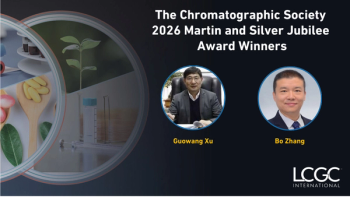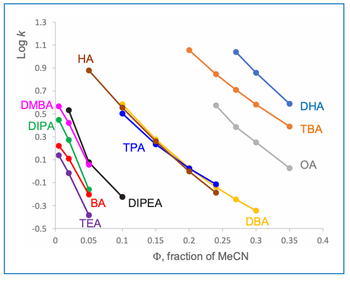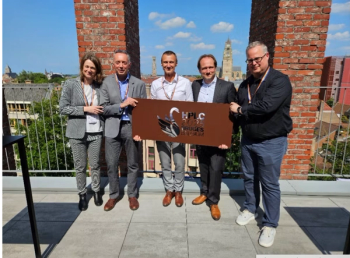
- December 2023
- Volume 19
- Issue 12
- Pages: 9–11
Rising Stars of Separation Science: Zhuoheng Zhou
This month we spoke to Zhuoheng Zhou from the Vrije Universiteit Brussel in Belgium about his research on advancing instrumental and column technologies for modern chromatography and its applications in novel biopharmaceutical modalities and proteomics.
This month we talk to Zhuoheng Zhou from the Vrije Universiteit Brussel in Belgium, about his focus on advancing instrumental and column technologies for modern chromatography and its applications in novel biopharmaceutical modalities and proteomics. We also spoke to him about his work developing a protocol to help with the design of polymer monolithic capillary columns.
Career Timeline:
2019: Received master’s degree, started PhD in engineering sciences, and awarded HTC-16 Tube Award in Ghent, Belgium
2020: Publication of Assessing Effects of Ultrahigh-Pressure Liquid Chromatography Instrument Configuration on Dispersion, System Pressure, and Retention
2023: Publication of A Protocol for Fabrication of Polymer Monolithic Capillary Columns and Tuning the Morphology Targeting High-Resolution Bioanalysis in Gradient-Elution Liquid Chromatography
Papers Mentioned in Interview
(1) Zhou, Z.; De Pra, M.; Steiner, F.; Desmet, G.; Eeltink, S. Assessing Effects of Ultrahigh‑Pressure Liquid Chromatography Instrument Configuration on Dispersion, System Pressure, and Retention. J. Chromatogr. A. 2020, 1634, 461660. DOI:
(2) Zhou, Z.; Hilder, E. F.; Eeltink, S. A Protocol for Fabrication of Polymer Monolithic Capillary Columns and Tuning the Morphology Targeting High-Resolution Bioanalysis in Gradient-Elution Liquid Chromatography. J. Sep. Sci. 2023, 46, 2300439. DOI:
Zhuoheng Zhou was trained as a chemist at Xiamen University (XMU) before he obtained his M.Sc. degree in analytical chemistry at the Environmental Research Institute, National University of Singapore (NUS). He then enrolled in Vrije Universiteit Brussel (VUB) and joined the Bio-Analytical Separation Science (BASS) group as a PhD researcher under the supervision of Sebastiaan Eeltink and Gert Desmet. He is currently conducting his postdoctoral research, which focuses on UHPLC instrumentation and microcolumn technology, and their application in environmental analysis, biopharmaceutical characterization, and proteomic profiling.
Articles in this issue
about 2 years ago
Analyzing the Light of the Futureabout 2 years ago
Splitless Injections: Resolving Target Compounds from the Solventabout 2 years ago
Optimizing Chemical Procurement for Precise Chromatography Analysisabout 2 years ago
HTC-18 Previewabout 2 years ago
Cal State LA and Leco Launch Chemical Analysis Lababout 2 years ago
Capillary GC Column Manufacture—A Troubleshooting Insightabout 2 years ago
Vol 19 No 12 The Column December 2023 Europe & Asia PDFabout 2 years ago
Vol 19 No 12 The Column December 2023 North American PDFNewsletter
Join the global community of analytical scientists who trust LCGC for insights on the latest techniques, trends, and expert solutions in chromatography.




